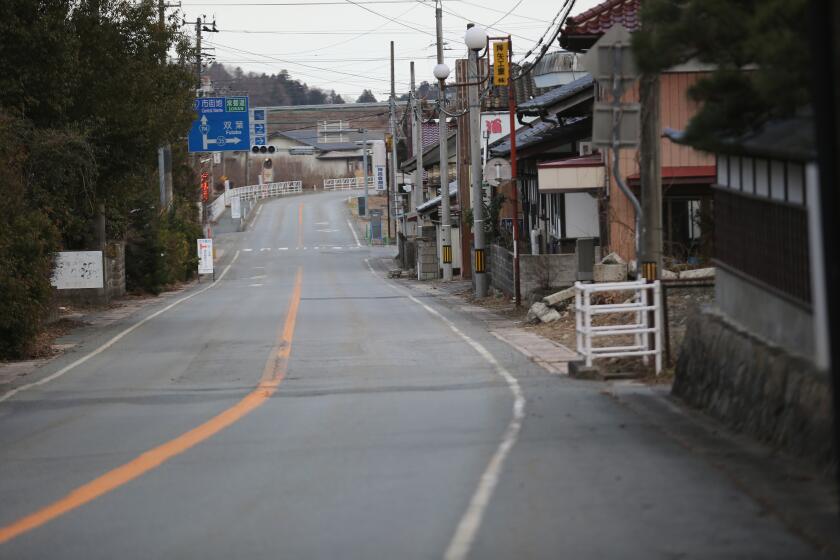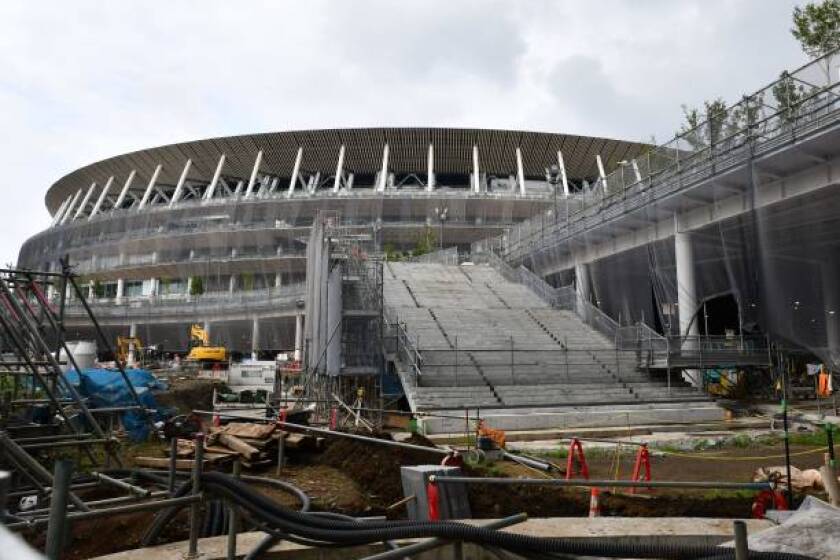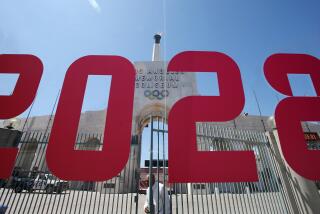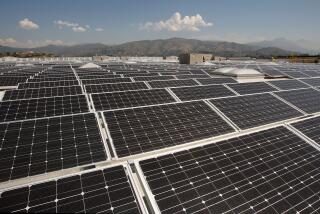Column: Homeless crisis could be the Fukushima of the 2028 Los Angeles Olympics
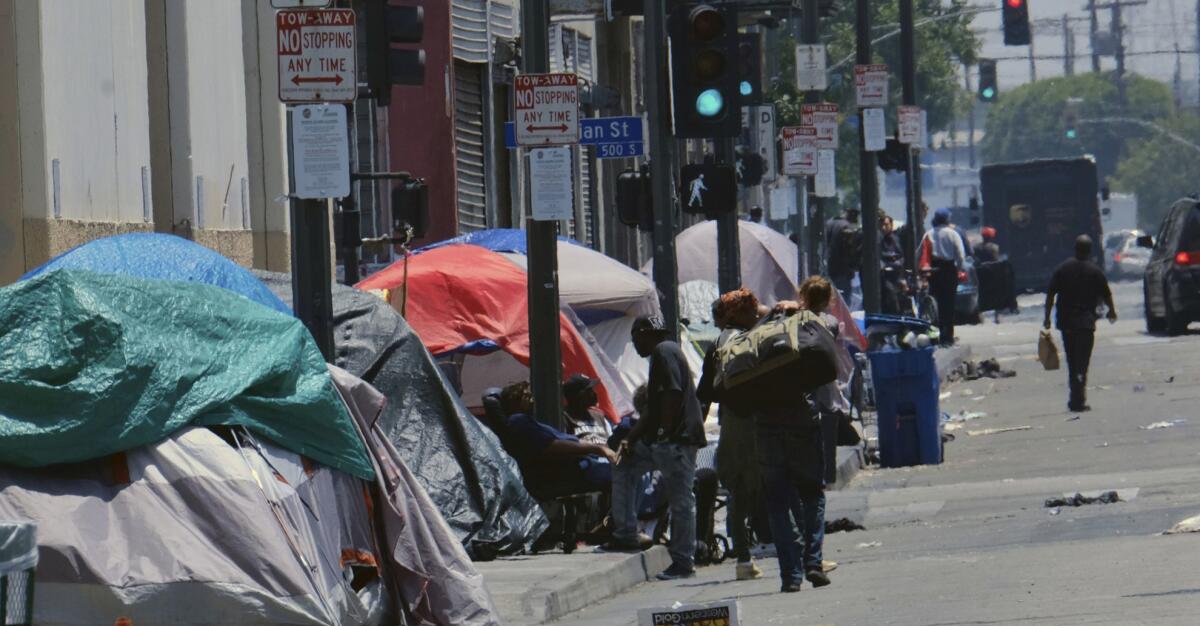
Around the corner from Shibuya Station is a narrow side street called Nonbei Yokocho that is lined with tiny bars, many of them so small they have enough space for only six or seven customers to be seated with their knees pressed against their neighbors’.
The customers’ proximity to each other magnifies the oppressive humidity of the summer months, as people in this country don’t like to blast air conditioning the way we do in the United States. Drink choice is often limited.
And, yet, there’s nothing like this place. When people are packed into a small area and served alcohol, they talk to each other. They share laughs. Strangers become friends, for a few hours, at least.
The world will become acquainted with such hidden gems of Tokyo next year when the city stages the Summer Olympics.
Practically speaking, this is one of the primary functions of the Games, to serve as a multiweek paid advertisement for the host city and country. The upcoming Olympics will display everything from Japan’s mega-punctual public transportation system to relative absence of violent crime.
And Fukushima.
As the recovery process continues nearly a decade after the devastating 2011 Japan earthquake, organizers of the 2020 Tokyo Summer Games say they want to help Fukushima.
More than an hour north of Tokyo by bullet train, Fukushima will nonetheless be part of the Games, as it refurbished a municipal stadium that will host baseball and softball games.
The eastern part of the prefecture was devastated in 2011 by a massive earthquake and tsunami that rocked the Tohoku region. Related flooding caused a nuclear plant meltdown.
Depending on the perspective, this tragedy-struck area’s designation as the centerpiece of the so-called “Reconstruction Games” is either a symbol of Japanese fortitude or the national government’s dishonesty. The debate will only intensify as the Olympics draw nearer.
The controversy should be instructive to Los Angeles, which will host the 2028 Summer Games.
A city can make itself the focal point of the world by hosting the Olympics, but it doesn’t get to decide how it is viewed by the world. Even in a place such as Japan, in which the construction of venues is scheduled to be completed well in advance of the Games, negatives will surface.
The most recent Winter Games in Pyeongchang had restaurants that served dog meat and Olympic venues that would rarely, if ever, be used again.
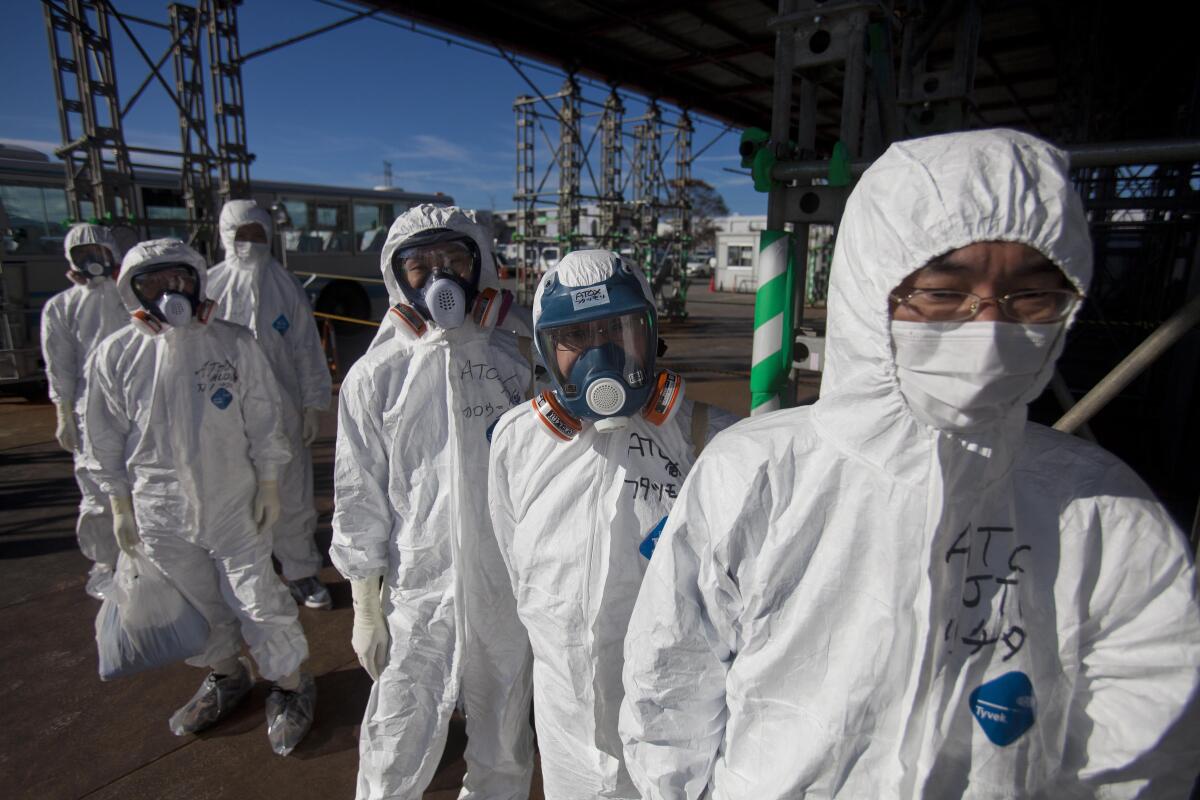
And unless something changes, Los Angeles will have widespread homelessness.
Visitors to our city for the 2028 Games will admire our beaches. They will marvel at our multiculturalism and vibrant ethnic enclaves. They will explore our rich and diverse food scene. They will enjoy our endless entertainment options.
They will also see downtown streets that are lined with tents.
There are more than 36,000 homeless people in the city of Los Angeles, according to the statistics that were released in June. At the time of the report, there were almost 60,000 homeless people in the county.
Both figures represented percentage increases in double digits.
The contrast between the haves and have-nots could be become part our city’s international identity. We have nine years to do something about it.
That’s an Olympian task. Then again, if the city addresses the problem, it won’t have to worry about controlling the narrative.
Here’s something about narratives: They usually can’t be controlled.
When colleague David Wharton and I visited Fukushima last month, prefecture officials handed us colorful information packets containing upbeat reports about the region’s recovery efforts.
With the opening ceremony of the 2020 Summer Olympics scheduled for a year from Wednesday, organizers in Tokyo can point to good news as fans clamor for tickets and corporations pledge billions of dollars in sponsorships.
Except as Wharton’s story in these same pages shows, we didn’t encounter much trouble finding people who offered an alternative view of what is happening.
Set aside for a moment the unprovable claim made by Olympic and government officials, which is that the Games can inspire disaster victims to continue their fights to rebuild their lives.
Listen to the experts on the ground. Listen to an evacuee such as Akiko Morimatsu, who remains in Osaka with her two children. It’s plainly obvious that the image Japan is trying to project to the world doesn’t represent the feelings of many of the locals.
“Chernobyl was 30-something years ago and continues to deal with its radiation problems,” Morimatsu said. “It’s still not over. Fukushima isn’t over yet either, but it’s forcefully been decided that it’s over. It’s not over at all.”
Stories like hers will be shared with the international community over the next year.
The Tokyo Games will take place nine year after Fukushima was ravaged by the earthquake and tsunami. That’s about as much time as Los Angeles has between now and the 2028 Olympics.
Our city is on the clock. Our leaders have to do something, and they have to start now.
More to Read
Go beyond the scoreboard
Get the latest on L.A.'s teams in the daily Sports Report newsletter.
You may occasionally receive promotional content from the Los Angeles Times.

